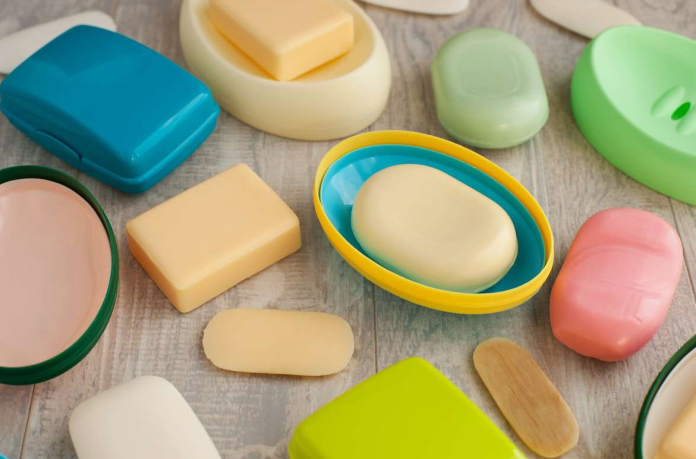Zinc Soap Benefits: A Natural Solution for Acne, Eczema, and More
Introduction
With the growing demand for clean, effective skincare, many are turning to nature-based alternatives to manage persistent skin issues. One standout product gaining attention is zinc soap—a powerful yet gentle solution praised for its ability to treat a variety of skin concerns without the harsh side effects of synthetic chemicals.
From soothing irritated skin to targeting acne-causing bacteria, zinc soap is making its way into more skincare routines. But what exactly makes it so effective? And who can benefit the most from using it?
This guide dives into the science behind zinc soap, its top benefits, and how to use it safely for healthy, balanced skin.
What Is Zinc Soap?
Zinc soap is a type of cleanser that contains zinc compounds, most commonly zinc pyrithione or zinc oxide, known for their antimicrobial and anti-inflammatory properties. These active ingredients are suspended in a gentle soap base, making the product ideal for sensitive or problematic skin.
Unlike regular soap, which may strip the skin or cause irritation, zinc soap is formulated to calm inflammation, fight bacteria, and support the skin’s natural barrier. It’s often recommended by dermatologists for individuals with chronic skin conditions such as acne, eczema, seborrheic dermatitis, and psoriasis.
Key Skin Benefits of Zinc Soap
1. Acne Treatment
Zinc soap is widely recognized for its effectiveness in treating acne. The zinc component works by reducing excess oil production (sebum), inhibiting the growth of acne-causing bacteria like Propionibacterium acnes, and calming inflammation in the pores.
Many people struggling with acne find that zinc soap offers a gentler alternative to stronger treatments like benzoyl peroxide or salicylic acid, which can be drying or irritating when overused. By helping to balance the skin’s oil levels while maintaining moisture, zinc soap is especially helpful for individuals with combination or sensitive skin.
2. Eczema Relief
Eczema sufferers often battle red, itchy, and inflamed skin that can worsen with harsh soaps or cleansers. Zinc soap provides a more soothing option. Its anti-inflammatory and antimicrobial properties help reduce flare-ups, support skin healing, and minimize itching without compromising the skin’s protective barrier.
Because it is free of common irritants like synthetic fragrances or sulfates, zinc soap can be used regularly to maintain skin comfort and prevent irritation.
Other Benefits for Skin Health
3. Seborrheic Dermatitis and Psoriasis
Zinc soap is also commonly used to treat seborrheic dermatitis—a chronic skin condition that causes redness, flaky patches, and dandruff. Its antifungal qualities help reduce the growth of Malassezia, a yeast often linked to this condition.
Similarly, those with mild to moderate psoriasis may experience relief from symptoms like scaling and itchiness when using zinc soap regularly. While not a cure, it can be a helpful part of a broader treatment plan recommended by a dermatologist.
4. Daily Maintenance and Preventative Use
Even those without chronic skin conditions can benefit from incorporating zinc soap into their routine. It’s a great choice for people with oily or acne-prone skin who want a preventative cleanser that won’t cause dryness. The mild antibacterial action helps keep pores clear and reduces the risk of future breakouts.
How to Use Zinc Soap Effectively
To get the most benefit from zinc soap, it’s important to use it correctly:
- Frequency: Start with once daily to avoid over-drying. You can increase to twice daily if your skin tolerates it well.
- Application: Wet your face or body, apply the soap, and let it sit for 1–2 minutes before rinsing. This allows the zinc to penetrate and work effectively.
- Moisturize After: Follow with a gentle, non-comedogenic moisturizer to keep your skin hydrated and balanced.
Are There Any Side Effects?
While zinc soap is generally safe, overuse can lead to dryness or mild irritation, especially for those with very dry or sensitive skin. It’s important to patch test before applying it to large areas, particularly on the face.
If you notice increased redness, peeling, or stinging, reduce usage or consult a dermatologist. Also, zinc soap should not be used on open wounds or severe burns unless advised by a medical professional.
How to Choose the Right Zinc Soap
Not all zinc soaps are created equal. Here’s what to look for when choosing one:
- Active Ingredient: Check if the soap contains zinc pyrithione (great for dandruff and seborrheic dermatitis) or zinc oxide (better for inflammation and irritation).
- Concentration: Look for products with at least 1–2% active zinc for therapeutic benefits.
- No Harsh Additives: Choose fragrance-free, sulfate-free, and paraben-free options if you have sensitive skin.
- Brand Reputation: Stick to dermatologically tested brands or those recommended by skin care professionals.
Conclusion
Zinc soap is a simple yet powerful addition to any skincare routine. Whether you’re dealing with acne, eczema, or simply looking for a gentle daily cleanser, its antimicrobial and anti-inflammatory properties offer natural relief without harsh chemicals.
As with any skincare product, results may vary—but for many, zinc soap provides the balance of effectiveness and gentleness that sensitive skin needs. Give it a try, and you might just find the natural solution your skin has been waiting for.




